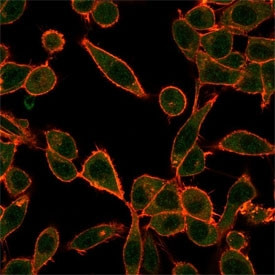Cookie preferences
This website uses cookies, which are necessary for the technical operation of the website and are always set. Other cookies, which increase the comfort when using this website, are used for direct advertising or to facilitate interaction with other websites and social networks, are only set with your consent.
Configuration
Technically required
These cookies are necessary for the basic functions of the shop.
"Allow all cookies" cookie
"Decline all cookies" cookie
CSRF token
Cookie preferences
Currency change
Customer-specific caching
FACT-Finder tracking
Individual prices
Selected shop
Session
Comfort functions
These cookies are used to make the shopping experience even more appealing, for example for the recognition of the visitor.
Note
Show the facebook fanpage in the right blod sidebar
Statistics & Tracking
Affiliate program
Conversion and usertracking via Google Tag Manager
Track device being used
| Item number | Size | Datasheet | Manual | SDS | Delivery time | Quantity | Price |
|---|---|---|---|---|---|---|---|
| NSJ-V9248-20UG | 20 µg | - | - |
3 - 10 business days* |
332.00€
|
||
| NSJ-V9248-100UG | 100 µg | - | - |
3 - 10 business days* |
752.00€
|
If you have any questions, please use our Contact Form.
You can also order by e-mail: info@biomol.com
Larger quantity required? Request bulk
You can also order by e-mail: info@biomol.com
Larger quantity required? Request bulk
0.2 mg/ml in 1X PBS with 0.1 mg/ml BSA (US sourced), 0.05% sodium azide. E6-associating protein... more
Product information "Anti-Ubiquitin-protein ligase E3A / UBE3A, clone PCRP-UBE3A-1A2"
0.2 mg/ml in 1X PBS with 0.1 mg/ml BSA (US sourced), 0.05% sodium azide. E6-associating protein (E6-AP), also designated ubiquitin protein ligase E3A (UBE3A), is a component of the ubiquitin-mediated proteolytic pathway that selectively targets proteins for degradation by the 26S Proteasome. Ubiquitin(Ub) is directly conjugated to protein substrates by the transfer of Ub from anE2 ubiquitin conjugating enzyme to the target protein. This conjugation is facilitated by the enzymatic activity of E3 ubiquitin ligase family members such asE6-AP. Several substrates of E6-AP have been identified and include the tumor suppressor protein p53 and the mammalian homolog of Rad23, HHR23A.Previous studies have indicated that E6-AP associates with the human papilloma virus E6 oncogene, which forms a complex with p53 and there by potentiates E6-AP mediated ubiquitination of p53. Genetic mutations that impair E6-AP activity result in the accumulation of p53 in the cytoplasm, and in many instances, these mutations are associated with the development of the rare neurodevelopmental disorder Angelman syndrome (AS), which is characterized by severe motor dysfunction and mental retardation. Protein function: E3 ubiquitin-protein ligase which accepts ubiquitin from an E2 ubiquitin-conjugating enzyme in the form of a thioester and transfers it to its substrates (PubMed:10373495, PubMed:16772533, PubMed:19204938, PubMed:19233847, PubMed:19325566, PubMed:19591933, PubMed:22645313, PubMed:24273172, PubMed:24728990). Several substrates have been identified including the ARNTL/BMAL1, ARC, RAD23A and RAD23B, MCM7 (which is involved in DNA replication), annexin A1, the PML tumor suppressor, and the cell cycle regulator CDKN1B (PubMed:10373495, PubMed:19204938, PubMed:19325566, PubMed:19591933, PubMed:22645313, PubMed:24728990). Additionally, may function as a cellular quality control ubiquitin ligase by helping the degradation of the cytoplasmic misfolded proteins (PubMed:19233847). Finally, UBE3A also promotes its own degradation in vivo. Plays an important role in the regulation of the circadian clock: involved in the ubiquitination of the core clock component ARNTL/BMAL1, leading to its proteasomal degradation (PubMed:24728990). Acts as transcriptional coactivator of progesterone receptor PGR upon progesterone hormone activation (PubMed:16772533). Acts as a regulator of synaptic development by mediating ubiquitination and degradation of ARC. Synergizes with WBP2 in enhancing PGR activity (PubMed:16772533). [The UniProt Consortium]
| Keywords: | Anti-Ubiquitin-protein ligase E3A, Anti-E6AP ubiquitin-protein ligase, Anti-Renal carcinoma antigen NY-REN-54, Anti-HECT-type ubiquitin transferase E3A, Anti-Human papillomavirus E6-associated protein, Anti-Oncogenic protein-associated protein E6-AP, Ubiq |
| Supplier: | NSJ Bioreagents |
| Supplier-Nr: | V9248 |
Properties
| Application: | FC, IF |
| Antibody Type: | Monoclonal |
| Clone: | PCRP-UBE3A-1A2 |
| Conjugate: | No |
| Host: | Mouse |
| Species reactivity: | human |
| Immunogen: | Recombinant full-length human UBE3A protein |
| Format: | Purified |
Database Information
| KEGG ID : | K10587 | Matching products |
| UniProt ID : | Q05086 | Matching products |
| Gene ID | GeneID 7337 | Matching products |
Handling & Safety
| Storage: | -20°C |
| Shipping: | -20°C (International: -20°C) |
Caution
Our products are for laboratory research use only: Not for administration to humans!
Our products are for laboratory research use only: Not for administration to humans!
Information about the product reference will follow.
more
You will get a certificate here
Viewed










